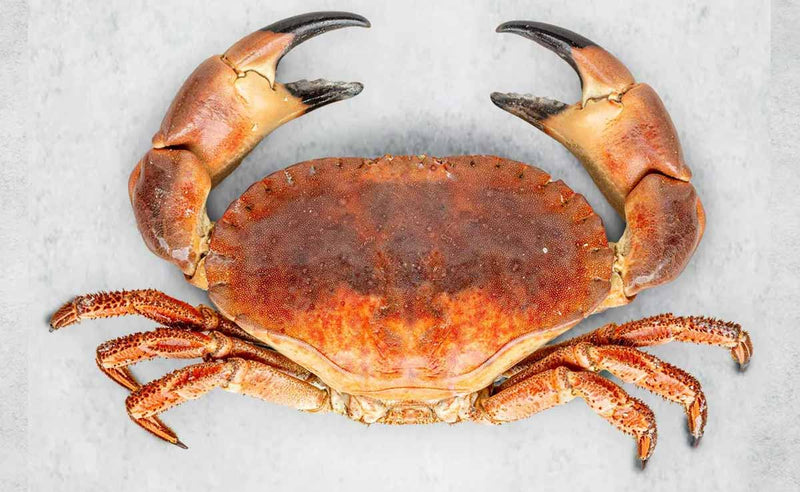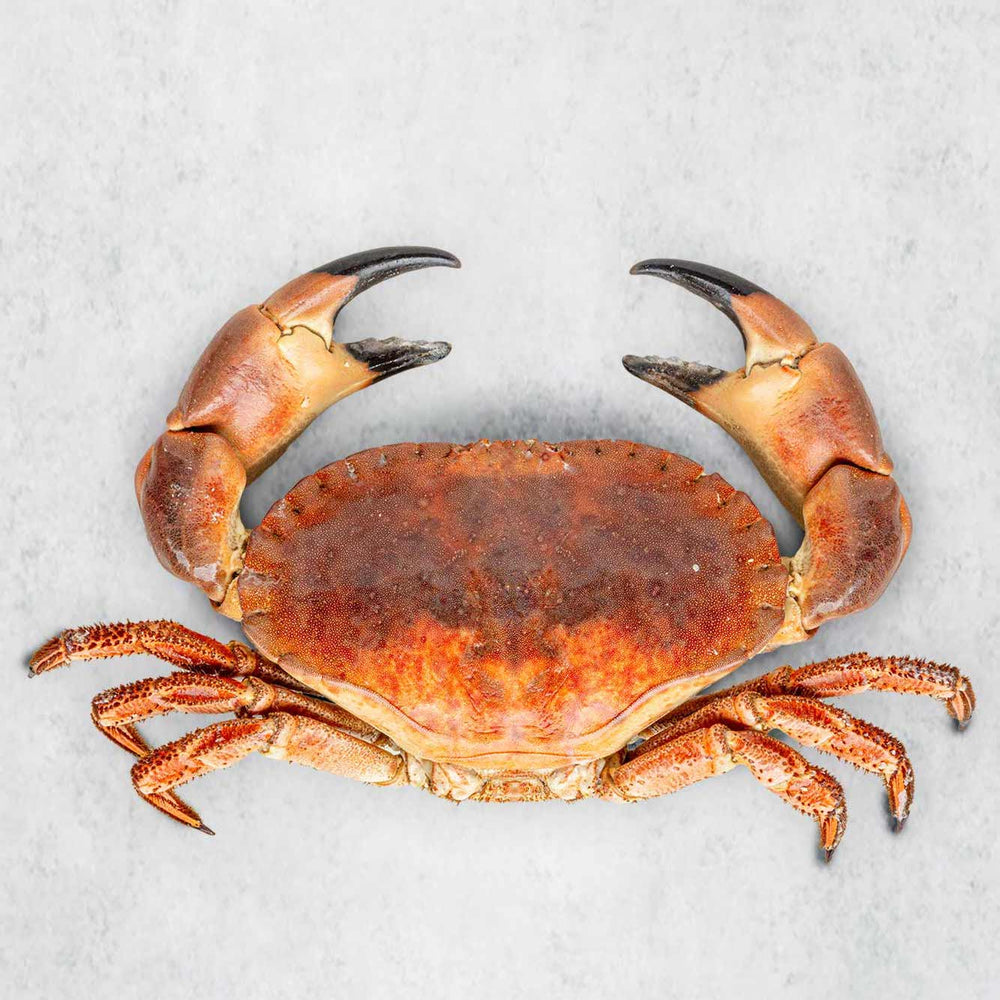No more bass
Quick read (Under five minutes)
Bass fishing banned for February and March
Few fish cause more heated, mouth-frothing, excitement amongst chefs and seafood fanatics than the sea bass.
Its unmistakable flesh is a thing of sheer awe. Somewhere between a cod and a mackerel, yet somehow taking the best bits from both. Flaky and white, yet oily, flavourful, and packed with enough health-affirming goodness to give your nutritionist a heart attack.
Which is why the beginning of February is such a sad time. It’s the time when the government action their ‘sea police’ - the Marine Management Organisation (MMO) - to stop all commercial catching of wild sea bass.
Sad as it is not to be able to get hold of any fresh-out-the-sea wild bass, it’s actually cause for great celebration. The point of course is to protect stocks whilst they’re breeding, to ensure a healthy sustainable population for many years to come.
So, with fresh bass off the menu, we thought this week it might be wise to both celebrate bass as well as offer some sustainable alternatives to the much sought-after fish.
The wolf of the sea
Packing around 20 grams of protein per serving, as well as omega-3 fatty acids, and minerals like cell-balancing potassium and thyroid-boosting selenium, makes eating sea bass one of the healthiest things you can pop in your boat race.
The health-giving meat of a bass is all down to lifestyle. They’re a truly pelagic fish, athletic, and an apex predator.
Muscular, streamlined and covered in a thick cartilage armour the sea bass is built for hunting. Under 2 kilos bass will hunt in groups, this offers them a level of protection from predators, although any sensible seal or dolphin tends to steer well clear, choosing to avoid the scalpel-sharp spikes that line a bass’s fins.
Fully grown bass hunt alone. At size, they no longer need the protection of a group. Nothing is going to mess with them. The largest bass caught on rod and line in UK waters was off Plymouth docks, it was 19.2 lb - the weight of a fully grown dachshund.
The only chink in a bass’s armour is their sexual maturity. A bass can take up to five years before it’s ready to breed. Which makes them incredibly vulnerable to overfishing – hence the ban.
It’s because of their aggressive athleticism that the French call bass loup de mer, ‘the wolf of the sea.’ It’s this that makes them such good eating, which is why we must be careful to celebrate and preserve them.
Abroad bass are farmed extensively, in places like Turkey, Greece and Malta. The arguments around this are convoluted. Our ethos at Rockfish is to where possible eat wild, British fish – in a sustainable way. To us, it just seems wrong to put such a qualified hunter in a cage. Instead, we should allow this fallow period for stocks to recover. And use it as an opportunity to enjoy some of the other incredible fish our waters have to offer...
The ‘fancy fish dinner’ alternative
It’s true, bass are fancy. Very often placed at the pricy end of the fishmonger’s block, it’s hard to find a fish that commands such applause amongst diners.
In the 1980s bass reached near dizzying heights of notoriety amongst the echelons of the rich and famous when Marco Pierre White served up fillets of bass slathered in caviar.
However, to us, a perfectly acceptable, no less desirable, and very much available alternative is the red mullet.
These slithers of crimson goodness have been the gastronomical delight of chefs for centuries. Roman Emperors prized red mullet to such an extent they would trade them for their weight in silver.
Like a bass the meat of a red mullet walks that deliciously thin line between a white fish and an oily fish, making for that truly unique eating experience.
Buy red mullet filleted and ready to cook on our online seafood market.
The ‘on a budget’ alternative
While red mullet is an excellent choice for those looking to impress might not be as perfect for those shopping on a budget.
After all, the NHS recommends that we eat at least two portions of seafood every week. Now, unless your name’s Julius you can’t be expected to eat like a Roman Emperor every meal.
Hake, on the other hand, is a much more affordable and exceptionally sustainable alternative.
More cod-like than a bass or red mullet, but certainly no less succulent. In fact, in Spain, hake commands such rabid excitement amongst cooks that people have gone to great lengths, broken laws, committed fraud, and almost gone to war to get the hake on their plates. It’s very much considered a national fish, a cultural treasure.
Here in the UK, our southwest hake fishery is one of those exciting sustainability success stories. In the late 1990s, our hake stocks were on their knees, nearing total depletion. But through the hard work of the Newlyn fishing community, a rich and flourishing MSC-certified hake fishery was established.
We’re very proud of our hake, and if you haven’t tried it, you should. Firm, flaky white flesh, it’s worth seeing what the Hispanics get all hot and bothered about.
Order blast frozen hake fillet today. Perfect cooked in paper with our Rockfish garlic butter.
The 'out there' alternative
Nothing says out there like a gurnard. With the blunt forehead of a Brixham bar brawler and the dazzling red colouring of a tropical reef fish, they’re a wondrous species to find in UK waters. Yet, completely overlooked when it comes to culinary acclaim.
Sweet and delicious, with that almost bass-like flaky, oily flesh, it’s worth celebrating!
Rated 5 stars on our Online Seafood Market our boneless gurnard fillets will struggle to disappoint.
Order blast frozen gurnard fillets today. Or fresh from our online seafood market Monday – Friday.
The ‘no alternative,’ alternative
Fine. You’ve read all of the above and decided there’s nothing we can say to convince you away from the internationally celebrated, universally sought-after, taste of wild sea bass.
That’s okay. Luckily for you, we thought this might happen and stocked up with a freezer full of them. Blast-freezing bass within hours of it being caught enables us to lock in the freshness. Their quality is quite literally frozen in time, so they are as good to eat as the day that they were landed. If you were worried about not being able to get your chops around this unmistakable wolf of the sea. Don’t be.
Order blast frozen bass today from our online seafood market.



